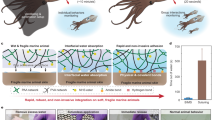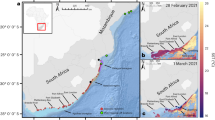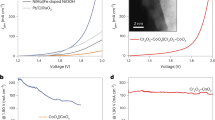Abstract
WE wish to report here a significant stage in the development of equipment which will recover deep sea animals at constant pressure and temperature. Organisms in the deep sea live at hydrostatic pressures which are lethal to ordinary surface living forms. Pressure increases by 1 atmosphere (14.7 pounds/inch2) for each 10 m depth and rises to 1,000 atmospheres in the deep trenches. Pressures in the range 0–1,000 atmospheres affect the dissociation and hydration of ions1,2, and alter the colloidal structure of cytoplasm, inhibiting cell division and similar phenomena3–5. Pressure may accelerate or retard the rates of many biological reactions6–8, and affect the normal functioning of muscle and nerve9,10 and various complex cellular structures11,12. The variety of organisms found at depth13 shows that pressure adaptation is common, but there have been all too few experiments carried out on deep sea organisms14. We are proposing to filter planktonic animals at various depths and recover them without loss of pressure in a pressure vessel fitted to the cod end of a plankton net. On recovery the plankton suspension will be transferred to an experimental pressure vessel without serious pressure fluctuation. Optical and polarographic techniques are already available for the measurement of respiration, activity and survival of plankton suspensions at pressure.
This is a preview of subscription content, access via your institution
Access options
Subscribe to this journal
Receive 51 print issues and online access
$199.00 per year
only $3.90 per issue
Buy this article
- Purchase on Springer Link
- Instant access to full article PDF
Prices may be subject to local taxes which are calculated during checkout
Similar content being viewed by others
References
Horne, R. A., and Courant, R. A., J. Geophys. Res., 69, 1971 (1964).
Disteche, A., J. Electrochem. Soc., 109, 1084 (1962).
Marsland, D., Ann. NY Acad. Sci., 51, 1327 (1951).
Macdonald, A. G., J. Cell Physiol., 70, 127 (1967).
Zobell, C. E., and Oppenheimer, C. H., J. Bact., 60, 771 (1950).
Johnson, F. H., Eyring, H., and Polissar, M. J., The Kinetic Basis of Molecular Biology (Wiley, 1954).
Morita, R. Y., Oceanogr. Mar. Biol. Ann. Rev., 5, 187 (1967).
Macdonald, A. G., Expt. Cell Res., 40, 78 (1965).
Brown, D. E. S., J. Cell. Comp. Physiol., 8, 141 (1937).
Spyropoulos, C. S., J. Gen. Physiol., 40, 849 (1957).
Tilney, L. C., Hiramoto, Y., and Marsland, D., J. Cell Biol., 29, 77 (1966).
Kitching, J. A., J. Exp. Biol., 34, 494 (1957).
Bruun, A. F., Geolog. Soc. Amer. Memoir 67, 1, Treatise on Marine Ecology and Paleoecology (edit. by Hedgpeth, J. W.), 641 (1963).
Zobell, C. E., and Morita, R. Y., J. Bact., 73, 563 (1957).
Macdonald, A. G., and Gilchrist, I., Proc. Conf. Oceanology Inter., Brighton, 1969.
Author information
Authors and Affiliations
Rights and permissions
About this article
Cite this article
MACDONALD, A., GILCHRIST, I. Recovery of Deep Seawater at Constant Pressure. Nature 222, 71–72 (1969). https://doi.org/10.1038/222071a0
Received:
Revised:
Issue Date:
DOI: https://doi.org/10.1038/222071a0
This article is cited by
Comments
By submitting a comment you agree to abide by our Terms and Community Guidelines. If you find something abusive or that does not comply with our terms or guidelines please flag it as inappropriate.



